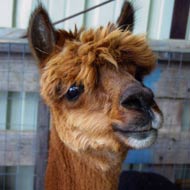New blood test for TB in camelids is “groundbreaking”

The current skin test for TB in camelids is known to be imprecise.
A “groundbreaking” new blood test has been launched for bovine TB (bTB) in camelids. The test is part of the UK's first voluntary TB surveillance scheme for the camelid industry.
The serological test requires just one blood sample and offers far greater accuracy than the current skin test, which is known to be imprecise, according to SureFarm who co-developed the test.
Claire Whitehead, president of the British Camelid Veterinary Society, said: “Bovine TB is not prevalent in camelids but the introduction of this new serological blood test will take away the uncertainty of the skin test and provide an opportunity for owners to verify the health of their herds.”
Research is being carried out that may make the test available for use in the wider farming, zoological and pet industries.
SureFarm collaborated with SureTest and Enfer Laboratories to develop the Enferplex blood test, which launched yesterday (July 17).
It enables both herd level testing and testing of individual stock.
The voluntary scheme, known as SureFarm Camelid Diagnostics, has been developed over the past two years with Defra, the AHVLA and representative organisations such as the British Alpaca Society and British Camelid Society.
Peter Roissetter, of the British Alpaca Society, commented: “We are very pleased that government has approved this groundbreaking voluntary scheme...
“The BAS is optimistic that government will soon finalise a realistic compensation package and the protocols for use in a confirmed TB breakdown, which will complete the overall approach we take in combating this disease.”



 HMRC has invited feedback to its communications regarding the employment status of locum vets and vet nurses.
HMRC has invited feedback to its communications regarding the employment status of locum vets and vet nurses.